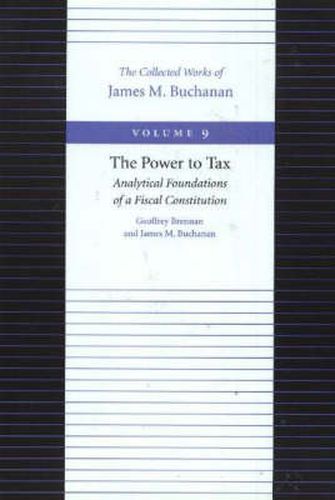Commenting on his collaboration with Geoffrey Brennan on The Power to Tax , James M. Buchanan says that the book is demonstrable proof of the value of genuine research collaboration across national-cultural boundaries. Buchanan goes on to say that The Power to Tax is informed by a single idea - the implications of a revenue-maximizing government. Originally published in 1980, The Power to Tax was a much-needed answer to the tax revolts sweeping across the United States. It was a much-needed answer as well in the academic circles of tax theory, where orthodox public finance models were clearly inadequate to the needs at hand. The public-choice approach to taxation which Buchanan had earlier elaborated stood in direct opposition to public-finance orthodoxy.What Buchanan and Brennan constructed in The Power to Tax was a middle ground between the two. As Brennan writes in the foreword, The underlying motivating question was simple: Why not borrow the motivational assumptions standard in public-choice theory and put them together with assumptions about policy-maker discretion taken from public-finance orthodoxy?
The result was a controversial book - and a much misunderstood one as well. Looking back twenty years later, Brennan feels confirmed in the rightness of the theories he and Buchanan espoused, particularly in their unity with the public-choice tradition: The insistence on motivational symmetry is a characteristic feature of the public choice approach, and it is in this dimension that The Power to Tax and the orthodox public-finance approach diverge.





